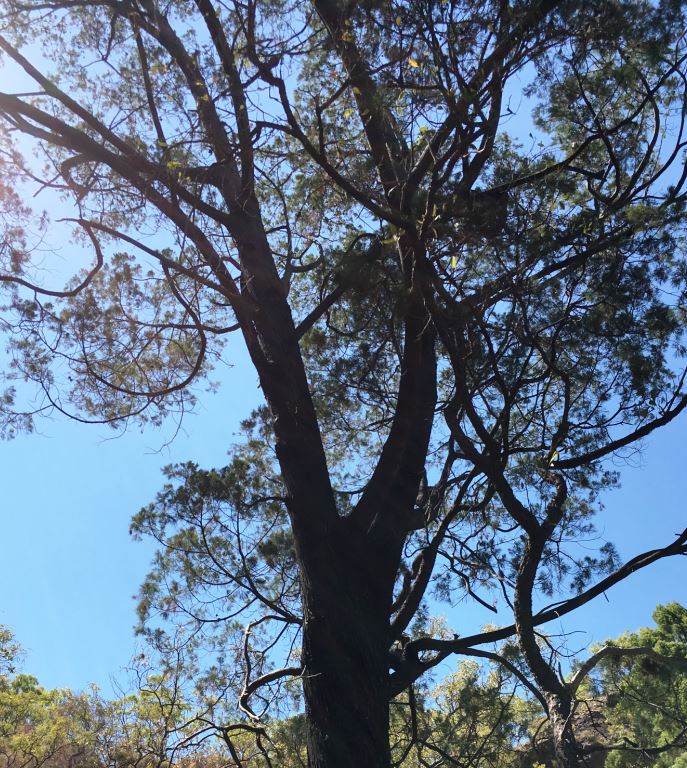
Λόγος: Logos (reason / meaning)
“I want to be a Jedi, like my Father” – Luke Skywalker to Obi-wan Kenobi “A New Hope”
“Being a Jedi is a hard life” – Qui-Gon Jinn to Anakin Skywalker “The Phantom Menace”
Is being Jedi an occupation, a job, an avocation, a lifestyle or a discipline? Can someone really call themselves a Jedi or claim the title of Master? Is being sober a lifestyle choice, a path, an avocation? Is it an actual job for some? Do we seek meaning in the things that we do or do the things that we do give our lives meaning? Do we give our lives meaning or the other way round? Are we nothing more the total sum of our existence at any given moment? Are you merely your job, possessions, responsibilities, car, where you live, your clothes and the image you put on for others or something more?
When Luke saw the bodies of his Uncle and Aunt and the smoking ruins of his home on Tatooine he knew that everything had changed. There was only one thing to do. Luke’s destiny was to become a Jedi and his actions from that moment would resound across the Galaxy. Being a Jedi was his calling, his purpose and the meaning he gave his life. Luke embraced his destiny. Being a Jedi was more than a Job it was the very essence of Luke, his purpose and calling.
Anakin was rescued from slavery. Anakin was a mere boy when he met Qui-Gon Jinn and Obi-wan Kenobi. Because Anakin was special he was taken from his home and mother to become a type of Galactic “Janissary” and serve the Jedi Order for life.
From the day he was born Anakin knew Fear, now he would learn to be a Jedi. Being Jedi was not what Anakin really wanted. A conflict between his heart’s desire and his duty raged relentlessly within Anakin. The imbalance tore him apart. Anakin was meant to be the “chosen one” but how could he? That’s what others wanted, not him. Anakin could not save himself let alone those he cared for. Eventually Anakin turned against the very people that bought him out of slavery and he destroyed everything in his path.
Luke found meaning as a Jedi. Anakin failed as a Jedi because he found no meaning in it other than the mission at hand. Anakin was never meant to be a Jedi.
“It’s only after we’ve lost everything that we’re free to do anything.” – Chuck Palahniuk, “Fight Club”
Fight Club
Recently I read “Fight Club” by Chuck Palahniuk it remains the defining novel of my Generation. A “Catcher in the Rye” of Gen X. The story got me thinking about things. In many ways “Fight Club” is also a meditation for those in recovery from alcoholism. We lived in an illusion that was self imposed. We knew that that our lives were a shambolic prison. Like the Narrator we sought “something different”.
In the Fight Club the narrator is attempting to escape the hollow materialistic and hedonistic world he is bound to as a mindless consumer and wage slave. The Narrator is completely unsatisfied with his life and finds no meaning it any part of it. In his insomnia induced psychosis the Narrator creates an alter ego, Tyler Durden, the man he wishes to be. Tyler Durden is contemptuous of society and wants to destroy it and create a nihilistic utopia from its ashes. The consequences of letting Tyler in to his life are devastating for the Narrator.
The “Fight Club” is a call to our inner primordial self, a place where one can be completely unfettered. My alcoholic self was my alter ego, a personal Tyler Durden who eventually took over every aspect of my life. Like the Narrator I became hateful and I wanted to fight everyone and everything. In some ways it was a bliss, a refuge from the mediocrity and meaningless of living in the modern world. Complete abandon. In my aggression I thought I was enlightened. Booze set me free but like Tyler’s persona in the story it was nothing but a delusion, an escape from reality. I was riddled with angst.
Tyler forced the Narrator to end himself but in doing so he ended Tyler. The Narrator emerged a new person, a transcendent version of himself. He awoke to reality at last. My Alcoholic self tried to destroy me and I found my Higher Power and also emerged stronger for it. I also awoke to reality, not a utopia full of rainbows and unicorns but a cold hard slap in your face reality. It was pure relief.
“Today is the sort of day where the sun only comes up to humiliate you.” – Chuck Palahniuk, “Fight Club”
A Living
I work for a living. Since I left school I have worked first to provide for myself and then to support others. In many ways my purpose in life has always been to work. In the absence of alcohol my career took precedence. Work became a surrogate for booze in sobriety. Often my career came at the expense of things that matter more. Now I realize I am not made to work. I do not live to work, I work to live.
We put so much emotional investment in to defining and shaping our identity. One of the first things people ask is “what do you do (for a living)? Your answer will usually set the impression that people will have of you. Their profession defines who they are and your work defines you if not something else you spend a lot of time doing.
Meaning and status are vital for the human need of social acceptance. People need to know where they reside within the social hierarchy and what their purpose within it is. A profession, career, work provides all of these things. Those who are happy in their work and find meaning and purpose in their position are more likely to have positive emotions. Those who are dissatisfied with their position, their work and their status are more likely to carry negative emotions. Those that find themselves in an existence that conflicts with their inner purpose are conflicted within themselves.
“This is your life and it’s ending one moment at a time.” – Chuck Palahniuk, “Fight Club”
Lobsters
Having status within the hierarchy is a human need rooted in a biological imperative that is hundreds of millions of years old. We have evolved to seek to climb the hierarchy and when we arrive at our potential we guard it against threats and defend our position from attack. This same behaviour is noted in every social animal from Humans to Wolves to Lobsters. Jordan Peterson in his seminal work “12 Rules for Life” talks a lot about Lobsters and describes this human need for self actualization in detail and how much of our emotional health and well being is tied to our social standing and our work.
The Human need for existential meaning goes beyond the need for a place within the social hierarchy or as Peterson call it the “Dominance Hierarchy”. We are more than Lobsters. Humans most of all yearn for meaning and seek purpose in their lives.
Even in the midst of calamity and tragedy a meaning to one’s suffering can be derived. This fundamental truth of human nature kept the Vienna Psychologist Viktor Frankl alive during his darkest years of captivity in the Nazi concentration camps. Because he deeply believed that he could define meaning from his suffering.
Commander James Stockdale spent seven years in a North Vietnamese prison suffering torture and the worst of deprivations but yet came out of it morally and spiritually intact. Despite the years lost, Stockdale claimed that the experience was life transforming. They found meaning through their experience and survived against the odds.
“You are not your job, you’re not how much money you have in the bank. You are not the car you drive. You’re not the contents of your wallet.” ― Chuck Palahniuk, “Fight Club”
Finding Meaning
Viktor Frankl relates in his book “Man’s search for Meaning” the story of a leading Viennese Doctor who arrested by the Gestapo began to proclaim his many credentials and qualifications. Showing the Nazi Officer his papers the Doctor emphasized his point that he was a man of great esteem and standing in the community. The German Officer took up all the papers and tore them up stating “Here this is all you are now! You are nothing!”.
The Doctor striped of his suit, his identity, dignity and privileged position in society died soon after in Auschwitz. The Doctor lost the will to live as he could find no meaning and purpose in life. In the Hanoi Hilton the communists did the same to their American prisoners and those who abandoned hope and lost meaning in the experience and purpose to their lives soon succumbed.
Those who shared the same experience but accepted it as an opportunity to find a deeper meaning and purpose survived and even thrived. They may have been beaten, tortured, starved and constantly humiliated but they kept possession of their mind and inner self. The Jailers could break their bodies but not their spirits. The prisoners had something that their tormentors could not take away; their will to meaning.
“If I could wake up in a different place, at a different time, could I wake up as a different person?”
– Chuck Palahniuk, “Fight Club”
Logos
Frankl went on to publish his treatise on “Logotherapy” a therapy based on the “will to meaning”. The fundamental truth that people seek meaning in their lives to survive and grow. Self actualization through meaning is the leading motivator in a person’s life. Inner conflict and negative emotions are assured when an individual fails to find a sense of meaning in their life or when it is frustrated. It can also result when a person is forced in a direction that conflicts with his inner purpose, like Anakin.
Logotherapy was the result of Frankl’s experience in the camps and came together from scraps of paper that he kept hidden within his prison uniform. Commander Stockdale finished his career in the US Navy and contested the US presidential elections. The experience of his internment never stopped him from achieving his goals and made him a better person.
“The lower you fall, the higher you’ll fly.” ― Chuck Palahniuk, “Fight Club”
Trudging On
I work for a living. I have a career. One day I will stop working but life will not stop. Hopefully I will be able to retire to books and gardening. Perhaps there will be Grandchildren. In time the memory of my working years and the importance I placed on my position, education and career will fade. They call this retirement.
Tomorrow I could also get a call from my employer telling me that I have been made redundant. Like anyone else I could find myself on the street without position, status, money or a home. I could remain unemployed for months or even years and fall in to destitution. Would this loss of security and upending of my plans for a long career diminish me as a person? Am I my job, position, the model of car I drive, the clothes I wear and the house I call home? Do these things have any more meaning than what I give them?
“I’m breaking my attachment to physical power and possessions, because only through destroying myself can I discover the greater power of my spirit.” – Chuck Palahniuk, “Fight Club”
Down but never Out
Although I’m ashamed of many things that I did as an Alcoholic in active abuse I have to concede that I’m glad I went through that and came out sober. Those years taught me a lot about my self. I had to fall to Earth to fly higher than before.
My career has provided a certain degree of financial security and pride in my abilities but it is my recovery that has and still gives my life real meaning. If I lose everything I can still choose to be sober. I can still find purpose and meaning in a Higher Power. Although they are all important, I am not my position, my status, education, property, relationships and I am certainly not my job.
“Look up at the stars and you’re gone.” – Chuck Palahniuk,“Fight Club”
Be You
Sometimes I need to remind myself that I work for a living and I don’t work to live. I have to remind myself to loosen any attachments I have to my job, position, status, property or relationships. Any of these things could end at any time. A bad day could trip me up and find me back to drinking.
Being Jedi has meaning. Frankl said that the meaning of life is to find meaning and purpose in it even on the darkest of days. We have to start by taking responsibility for ourselves and for others. Jordan Peterson was also right in suggesting we should always stand up straight with our shoulders back. Tyler Durden ultimately had it wrong. The Jedi Order was definitely wrong about Anakin.
I have to be like Frankl or Stockdale and accept that the winds of fate may not blow in my favor but they will blow me somewhere. I should know they will and be prepared for that. That is the nature of Logos. I may call myself many things in this life, I will be many things but I am and always will be a recovered Alcoholic in training. That’s where I find meaning and purpose every day.
“I let go. Lost in oblivion. Dark and silent and complete. I found freedom.” ― Chuck Palahniuk, “Fight Club”










